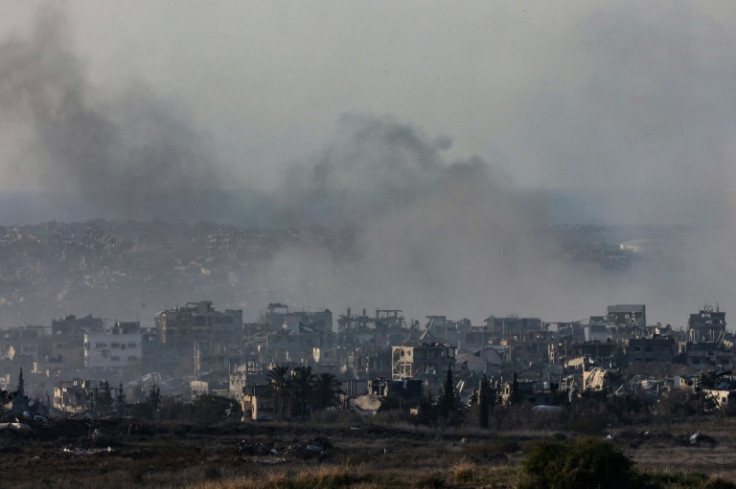What Do We Know About Latest Gaza Talks?

Mediators Qatar, Egypt and the United States have launched a new push to end the Gaza war and secure the release of dozens of hostages held in the Palestinian territory.
Indirect negotiations between Israel and Hamas have resumed in Doha and US Secretary of State Antony Blinken said this week that a deal is "very close".
However, the details of the progress remain unclear, with numerous obstacles still to overcome, analysts say.
In early January, Prime Minister Benjamin Netanyahu announced that Israeli negotiators would continue working to secure the release of 95 hostages still held in Gaza. According to Israeli officials, 34 of those hostages are dead.
Key issues, however, remain unresolved, including the terms of a ceasefire during which a prisoner exchange could take place, the scale of humanitarian aid for Gaza, the return of displaced Gazans to their homes, the withdrawal of Israeli troops from the Palestinian territory and the reopening of border crossings.
Netanyahu has firmly rejected a full withdrawal of Israeli troops from Gaza and remains opposed to any Palestinian governance of the territory.
A senior Hamas official told AFP that Egypt and Qatar have proposed postponing discussions on contentious issues, such as the full withdrawal of Israeli troops and a lasting ceasefire, until after a prisoner exchange has been implemented.
"There is a preliminary understanding to postpone these matters," he said, on condition of anonymity as he was not authorised to speak publicly about the negotiations.
Mairav Zonszein, an Israel specialist at the International Crisis Group, said Netanyahu appeared to be more open to a deal this time.
"The only thing that has changed now is that Netanyahu seems to be more willing domestically to go for a deal, but he is only interested in going for a partial deal," Zonszein said.
In recent months, Netanyahu has strengthened his ruling coalition, making him less vulnerable to threats from far-right partners who have warned they would quit his government if the war in Gaza is ended.
"For Netanyahu, it takes pressure off him from other things, like the fact that soldiers are dying in Gaza every day or the fact that he's on trial," Zonszein said.
Netanyahu is being tried on corruption charges which he denies.
For the first time, Hamas announced on Sunday its willingness to release 34 Israeli hostages as part of the "first phase" of an agreement.
This would include women, children, the elderly and the sick.
Hamas also asked for a "week of calm" to confirm the status of captives, a request Israel rejected, asserting that Hamas already knows the condition of all the hostages.
Diplomatic sources have indicated mounting international pressure on both sides, with some referencing statements from US President-elect Donald Trump, who has vowed stronger support to Israel and warned Hamas of "hell to pay" if it does not free the captives before his inauguration on January 20.
Several analysts believe Netanyahu prefers a deal to be finalised under Trump's presidency rather than in the final days of Joe Biden's administration.
"I cannot foresee significant progress until President Trump assumes office," said Kobi Michael, a senior researcher at Misgav Institute for National Security and Zionist Strategy, an Israeli think tank.
"While I hope my assessment is wrong, based on my understanding of Hamas and the present situation, I do not believe we will see any breakthroughs in the near future."
A senior Hamas leader, Taher al-Nunu, also called on Trump to exert pressure on Netanyahu.
"Hamas is keen on making the mediators' efforts succeed in reaching an agreement on all issues," he told AFP.
"We call on the newly elected US President Donald Trump to contribute by pressuring the occupation to reach a comprehensive deal."
"The negotiations are difficult and complex," another senior Hamas official familiar with the ongoing talks told AFP.
The remaining stumbling blocks have bogged down talks for months.
No truce has been agreed in Gaza since a week-long pause in November 2023.
That ceasefire facilitated the release of 105 hostages, the 80 Israelis among them in exchange for 240 Palestinian prisoners held by Israel.
"As long as they (Hamas) remain stubborn and continue to demand the end of the war as a full commitment guaranteed by the United States and by the Arab countries, there will be no progress, because Israel will not give such a commitment," Michael said.

© Copyright AFP 2025. All rights reserved.





















